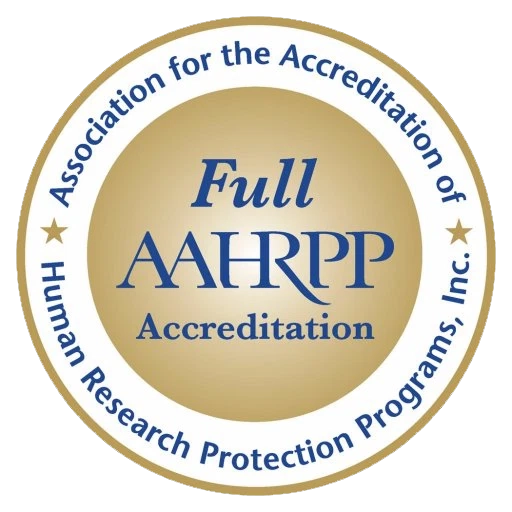I Will Survive: How the IRB Protects Participants From Research Gone Wrong
In the world of clinical research, participant safety isn’t just a priority, it’s the priority. Every research study comes with potential risks, and while scientific innovation is exciting, history has shown us that ethical oversight is absolutely essential. That’s where Institutional Review Boards (IRBs) step in. Like the defiant survivor in Gloria Gaynor’s hit song I Will Survive, research participants should be able to enter and exit a clinical trial without harm, protected by a system designed to uphold their rights and well-being.
Let’s take a deep dive into how the IRB ensures that no matter what happens in a study, participants have the ethical safeguards they need to survive and thrive.
🎤 “At first I was afraid, I was petrified…”
Imagine a potential clinical trial participant reading through an informed consent document. It’s filled with scientific jargon, lists of possible side effects and a deep dive into the study’s goals. They might feel overwhelmed or even scared. How do they know this study is safe? Who’s looking out for them?
That’s where the IRB comes in.
An IRB is an independent committee responsible for reviewing, approving and monitoring research involving human participants. Their primary role? To ensure that the study is ethical, the risks are minimized and the potential benefits outweigh any possible harm.
Without this oversight, research could quickly turn dangerous. History has already shown us the consequences of unethical research practices, from the Tuskegee Syphilis Study to the exploitation of Henrietta Lacks’ cells without consent. IRBs exist to prevent these tragedies from happening again.
🎤 “Kept thinkin’ I could never live without you by my side…”
Clinical researchers might feel like their studies can’t move forward without an IRB stamp of approval and they’re absolutely right. No ethical research involving human subjects can proceed without IRB review.
The IRB acts as the ethical gatekeeper, analyzing studies through a strict lens that considers:
✅ Risk vs. Benefit: Does the potential good outweigh the possible harm?
✅ Informed Consent: Are participants truly aware of what they’re signing up for?
✅ Vulnerable Populations: Are extra protections in place for children, prisoners or those unable to provide full consent?
✅ Data Protection: Is participant privacy and confidentiality being respected?
Informed Consent: Are participants truly aware of what they’re signing up for?
If a study fails in any of these areas, the IRB has the power to reject it, require modifications, or even shut it down.
🎤 “And so you're back, from outer space…”
Just because a study is approved doesn’t mean the IRB’s job is done. Ethical oversight is a continuous process, ensuring that if something goes wrong, there’s an immediate plan of action.
IRBs monitor clinical trials through:
– Continuing Reviews: Periodic assessments of ongoing studies to make sure nothing has changed.
– Adverse Event Reporting: Investigators must report any unexpected risks or negative outcomes immediately.
– Protocol Amendments: If a researcher wants to change the study—whether it’s dosing levels, participant recruitment or testing procedures—the IRB must re-review and approve it.
Without this ongoing supervision, minor issues could spiral into serious ethical violations, putting participants at risk.
🎤 “Did you think I'd crumble...?"
Some researchers might feel frustrated when an IRB requests changes or pushes back on a study’s design. But IRBs aren’t obstacles, they’re safeguards. Their role is not to block research but to make it stronger, safer and more ethically sound.
Consider some of the worst-case scenarios in research history:
– Thalidomide Disaster (1950s-60s): A drug given to pregnant women that caused severe birth defects, without proper safety testing.
– The Willowbrook Hepatitis Study: Mentally disabled children were intentionally infected with hepatitis to study disease progression.
– The Milgram Experiment: Participants were deceived into thinking they were delivering deadly shocks to others, leading to extreme psychological distress.
Had strict IRB oversight existed at the time, these studies would have never been allowed. Today, IRBs ensure that research participants don’t crumble under the weight of unethical experimentation.
🎤 “Oh no, not I! I will survive!”
At the heart of every clinical trial is a human being. Someone who deserves to be protected, informed and treated with dignity. IRBs ensure that every research study upholds these fundamental principles:
– Respect for Persons – Participants must be given the autonomy to make informed decisions about their involvement.
– Beneficence – Studies should aim to do good while minimizing harm.
– Justice – The benefits and burdens of research must be fairly distributed, without exploitation of vulnerable populations.
Thanks to the IRB, participants don’t have to rely on luck to survive a clinical trial. They have an entire ethical system backing them up.
🔥 Final Chorus: The IRB’s Role in the Future of Research
As clinical research advances with AI-driven studies, decentralized trials and gene-editing innovations, IRBs are more important than ever. Ethics must evolve with science, ensuring that even as research pushes boundaries, participants remain protected.
At Sabai, we understand that ethical oversight isn’t a formality—it’s a responsibility. Our IRB ensures that research is conducted with integrity, balancing innovation with ethical principles.
So, the next time you hear I Will Survive, think of it as an anthem, not just for resilience in life, but for the role of the IRB in safeguarding human subjects. Because when it comes to clinical research, we don’t just want participants to survive. We want them to thrive.
💡 Need an Independent IRB You Can Trust?
At Sabai, we specialize in providing unbiased, efficient and ethical IRB reviews to support your clinical research. Whether you’re launching a new study or need ongoing oversight, our team of experts is here to ensure participant safety and regulatory compliance.
Let’s advance research ethically, responsibly and successfully. Together.



